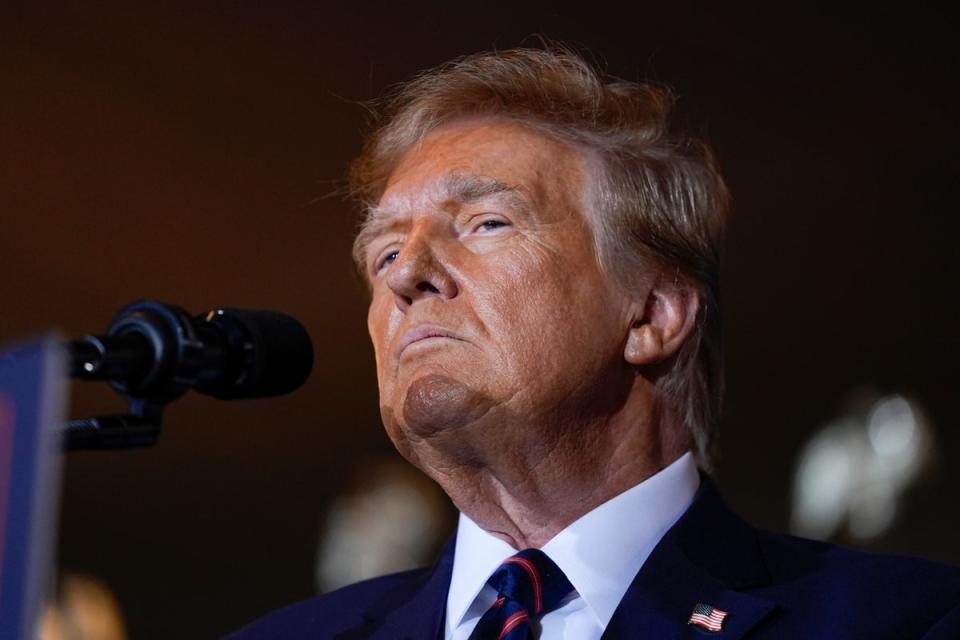Maine Supreme Court refuses to weigh in on Trump 2024 ballot eligibility
Maine’s Supreme Court has declined to weigh in on whether former president Donald Trump can stay on the state’s ballot amid challenges to his eligibility to run in the 2024 election.
Maine became the second state to disqualify Mr Trump from its 2024 presidential primary ballot in December, finding the former president ineligible due to his involvement in the January 6 attack on the US Capitol.
But a judge at Maine’s top court put that decision on hold on Wednesday evening, upholding a previous decision that the US Supreme Court must first rule on a similar case in Colorado.
A previous court ruling had placed the ban on Mr Trump’s appearance on the state’s ballot on pause, requiring Maine Secretary of State Shenna Bellows to await the US Supreme Court decision.
Ms Bellows appealed that ruling.
But, in a unanimous decision handed down on Wednesday, the Maine Supreme Judicial Court dismissed her appeal.
“The Secretary of State suggests that there is irreparable harm because a delay in certainty about whether Trump’s name should appear on the primary ballot will result in voter confusion. This uncertainty is, however, precisely what guides our decision not to undertake immediate appellate review in this particular case,” the court said.
The US Supreme Court is set to hear arguments on the Colorado case on 8 February, with Maine’s presidential primary scheduled for 5 March.

In December, the Colorado Supreme Court determined that Mr Trump was ineligible to appear on the ballot because Section 3 of the 14th Amendment of the US Constitution prohibits anyone who “engaged in insurrection or rebellion” from holding public office.
The court claimed that Mr Trump engaged in an insurrection when he incited and fomented a riot at the US Capitol on January 6 2021. Maine quickly followed, filing a lawsuit to kick Mr Trump off the ballot.
The US Supreme Court has never ruled on Section 3 of the 14th Amendment, but the nation’s highest court is set to consider whether Mr Trump has “presidential immunity” from charges connected to his attempts to subvert the outcome of the 2020 presidential election.
Mr Trump has argued as such, but opponents have argued that the former president is attempting to use the Constitution as a “get out of jail free card”.
“Trump goes on to argue that even if he did incite the insurrection, well, the Constitution doesn’t apply to him. I don’t think that’s right,” Jena Griswold, whose agency runs elections in the state of Colorado, told MSNBC’s The Last Word earlier this month.
Mr Trump has also attempted to wriggle his way out of the charges by amplifying a conspiracy theory that the multiple lawsuits and criminal indictments against him are part of a wider effort directed by President Joe Biden to keep him out of office.
He previously argued that Ms Bellows was biased against him and should have recused herself from the case.
The Republican frontrunner also said that her actions had disenfranchised voters in Maine, and were part of a broader effort to keep him off the ballot.
Ms Bellows, who was elected by the Democratic-controlled Legislature, hit back at the allegations, saying she was bound by state law to make a determination after several residents challenged Mr Trump’s right to be on the primary ballot.
She put her decision on Mr Trump’s ballot eligibility on hold pending judicial proceedings, and vowed that she would abide by a court’s ultimate ruling.

 Yahoo News
Yahoo News 
